Bird News from Patrick Blake
Spent the Chuseok holiday on Gageo-do, hoping to catch some migrants on their movement south. Weather throughout the trip was perfect, with predominantly clear sunny skies; this was probably the reason there was a decided lack of migrants. However, several unusual and unexpected species were observed. Highlights include Styan’s Grasshopper Warbler, Long-tailed Shrike, Brown Shrike, and some good pelagic birding on the ferries to and from Gageo-do. See below for more information.
- Streaked Shearwater Calonectris leucomelas – a single bird on the ride out to Gageo-do near Tae-do; 3 separate birds around Gageo-do on the return trip
- Swinhoe’s Storm Petrel Oceanodroma monorhis – 30+ on the way to Gageo-do; 40+ on the return trip
- presumed Band-rumped Storm Petrel Oceanodroma castro – 3 individual birds observed amid Swinhoe’s Storm Petrels on the way to Gageo-do. Clearly seen white rump on an overall dark-colored storm petrel; ruled out Leach’s Storm Petrel because of rounded tail (not forked) and no appearance of a small dark stripe across the white rump band (although not all Leach’s show this stripe; some Leach’s do not show a white rump at all). No photos were possible (outside access is restricted on the ferry), but the white rump was clearly obvious during the observations, so Swinhoe’s is unlikely
- Eastern Cattle Egret Bubulcus coromandus – 1 bird in Gageodo-ri on the 6th; 3 birds on the 8th and 9th
- Grey Heron Ardea cinerea – 15+ at the main harbor in Gageodo-ri most days
- Eastern Great Egret Ardea a. modesta – 1 at the main harbor in Gageodo-ri on the 7th; 2 on the 9th
- Pacific Golden Plover Pluvialis fulva – 1 on the pebble beach at Gageodo-ri on the 6th and 7th
- Kentish Plover Charadrius alexandrinus – 1 on the pebble beach at Gageodo-ri on the 6th
- Latham’s Snipe Gallinago hardwickii – 1 flushed at the Sky Park near Gageodo-ri on the 6th; 1 flushed near Hangri-maeul on the 7th
- Wood Sandpiper Tringa glareola – common, with 3-5 being seen most days
- Common Sandpiper Actitis hypoleucos – 2 observed on the 7th
- Ruddy Turnstone Arenaria interpres – 2 observed on the 7th
- Red-necked Stint Calidris ruficollis – 1 observed at Gageodo-ri on the 7th; 6 observed there on the 9th
- Long-toed Stint Calidris subminuta – 1 observed at Gageodo-ri on the 9th
- Red-necked Phalarope Phalaropus lobatus – 12 observed on the ferry ride near Heuksan-do on the 6th
- Black Wood Pigeon Columba janthina – 1 observed on the 8th
- White-throated Needletail Hirundapus caudacutus – 5 observed near Hangri-maeul on the 7th
- Pacific Swift Apus pacificus – 10+ observed near Hangri-maeul on the 7th
- Oriental Dollarbird Eurystomus orientalis – 1 observed near Gageodo-ri on the 6th; 1 observed in the interior mountains on the 8th
- Common Kingfisher Alcedo atthis – 1 observed at Gageodo-ri on the 6th; 1 observed near Hangri-maeul on the 7th
- Eurasian Wryneck Jynx torquilla – 1 observed near Hangri-maeul on the 7th
- White-backed Woodpecker Dendrocopos leucotos – 1 heard calling near Sam-gu on the 8th
- Common Kestrel Falco tinnunculus – 1 or 2 observed most days around Gageodo-ri
- Peregrine Falcon Falco peregrinus – 1 observed near Hangri-maeul on the 7th; 2 observed near Sam-gu and the interior mountains on the 8th
- Bull-headed Shrike Lanius bucephalus – 1 juvenile observed near Gageodo-ri on the 9th
- Brown Shrike Lanius cristatus – 2 observed; 1 around Gageodo-ri on the 6th, 8th, and 9th; a second at Hangri-maeul on the 7th
- Long-tailed Shrike Lanius schach – 2 observed; 1 at the Sky Park near Gageodo-ri on the 7th; 1 observed at Hangri-maeul, also on the 7th
- Varied Tit Poecile varius – 3 observed near Hangri-maeul on the 7th; 5+ observed near Sam-gu on the 8th
- Eastern Great Tit Parus minor – 5+ observed near Hangri-maeul on the 7th; 2 observed near Sam-gu on the 8th
- Light-vented Bulbul Pycnonotus sinensis – common around the villages; usually 30-40+ per day
- Brown-eared Bulbul Hypsipetes amaurotis – not as common as the LVBU; usually 10+ per day
- Barn Swallow Hirundo rustica – 2 or 3 observed each day; 12+ observed near Hangri-maeul on the 7th
- Dusky Warbler Phylloscopus fuscatus – most common warbler observed; 10+ on the 7th and 8th
- Yellow-browed Warbler Phylloscopus inornatus – 1 observed near Hangri-maeul on the 7th; 3+ in Sam-gu on the 8th
- Eastern Crowned Warbler Phylloscopus coronatus – 1 observed near Hangri-maeul on the 7th
- Pale-legged Leaf Warbler Phylloscopus tenellipes – 1 heard along the interior of the island on the 8th
- Middendorff’s Grasshopper Warbler Locustella ochotensis – 1 observed near the Sky Park at Gageodo-ri on the 6th and 7th
- Japanese White-eye Zosterops japonicus – very common; 100+ per day
- Pale Thrush Turdus pallidus – 8+ heard and observed in the interior of the island on the 8th
- Grey-sided Flycatcher Muscicapa griseisticta – very common; 10+ observed most days, especially around Gageodo-ri and the western road leading to Hangri-maeul
- Siberian Blue Robin Larvivora cyane – 1 observed along the central road leading to Gageodo-ri on the 8th
- Blue Rock Thrush Monticola solitarius – very common around the villages; 5+ observed each day
- Stejneger’s Stonechat Saxicola stejnegeri – 1 observed at the Sky Park by Gageodo-ri on the 6th
- Eastern Yellow Wagtail Motacilla tschutschensis – 1 observed at Gageodo-ri on the 7th; 3 observed there on the 9th
- Grey Wagtail Motacilla cinerea – common; 3-5 observed each day, especially around Gageodo-ri
- White Wagtail Motacilla alba leucopsis – common; 4+ observed each day, especially around Gageodo-ri
- Richard’s Pipit Anthus richardi – 3 observed at Hangri-maeul on the 7th
- Chinese Grosbeak Eophona migratoria – a large flock of around 30+ birds observed atop the ridge above Gageodo-ri on the 7th
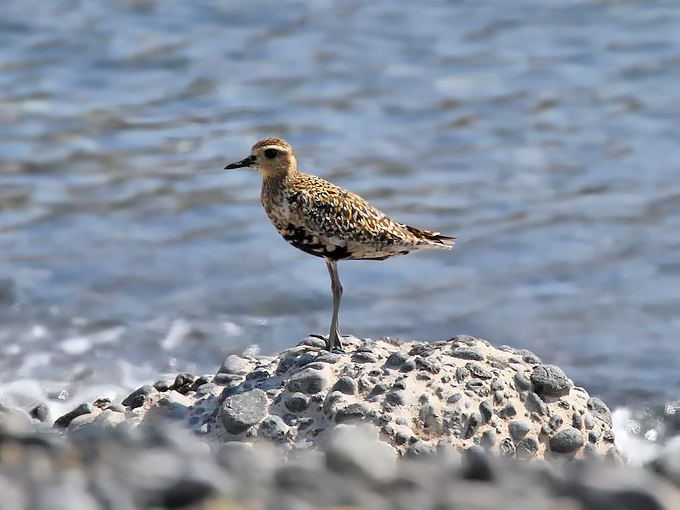
Pacific Golden Plover Pluvialis fulva, © Patrick Blake
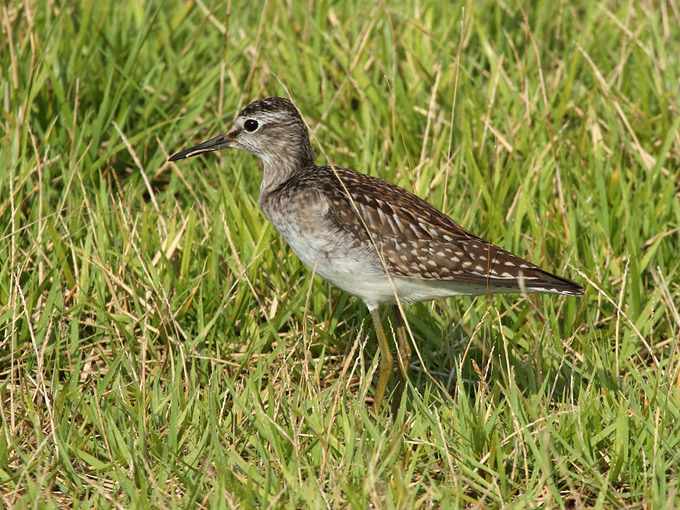
Wood Sandpiper Tringa glareola, © Patrick Blake
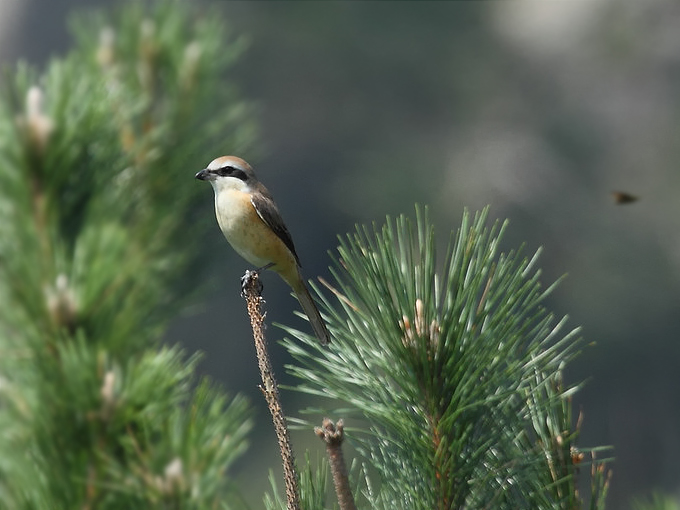
Brown Shrike Lanius cristatus, © Patrick Blake
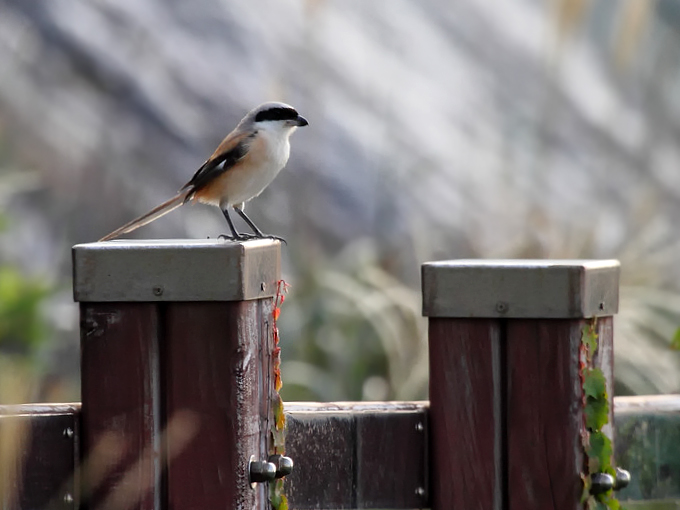
Long-tailed Shrike Lanius schach, © Patrick Blake
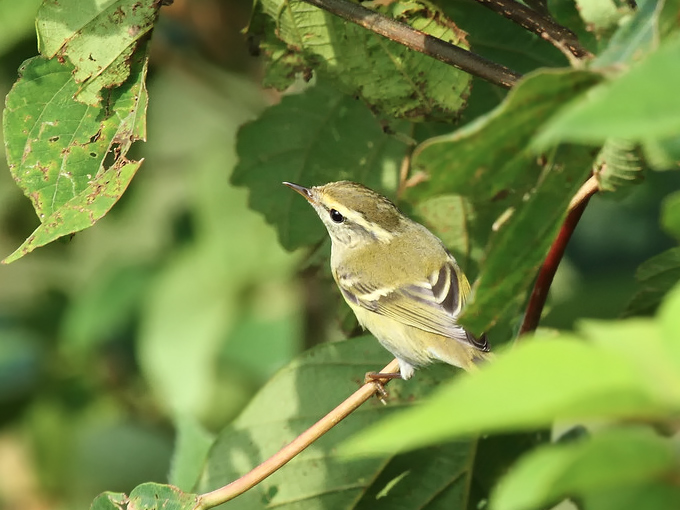
Yellow-browed Warbler Phylloscopus inornatus, © Patrick Blake
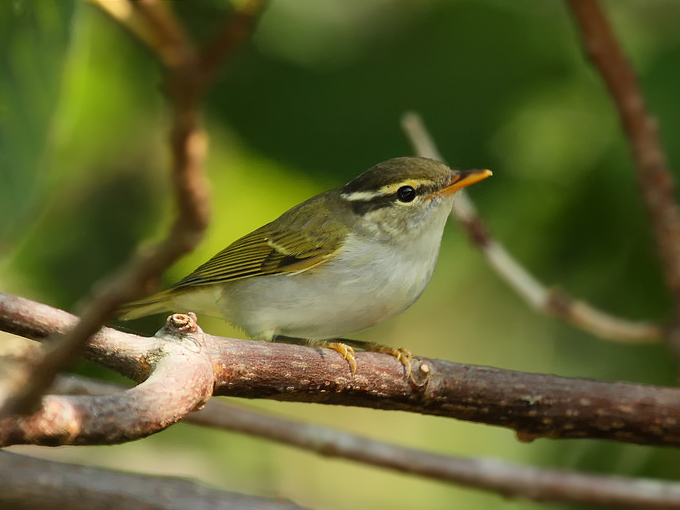
Eastern Crowned Warbler Phylloscopus coronatus, © Patrick Blake
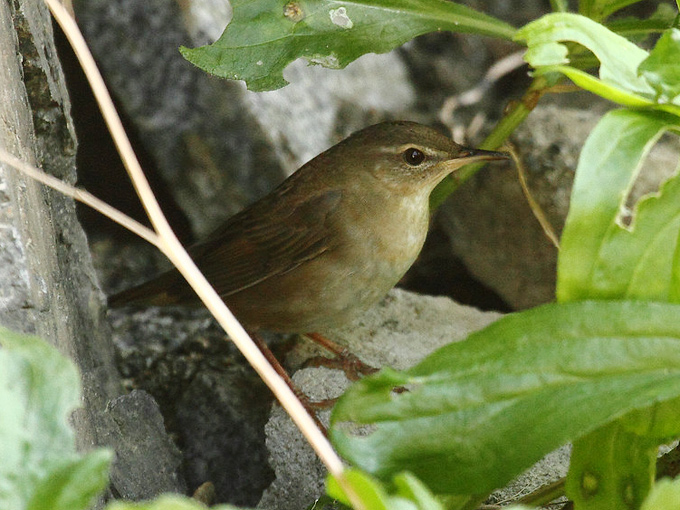
Middendorff’s Grasshopper Warbler Locustella ochotensis, © Patrick Blake
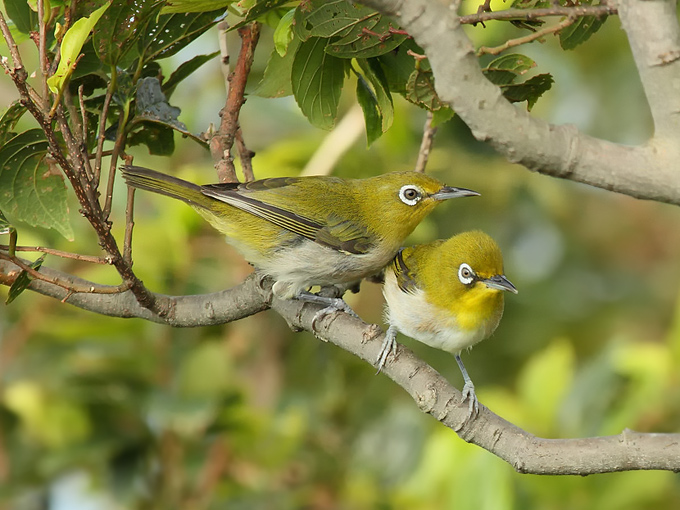
Japanese White-eye Zosterops japonicus, © Patrick Blake


Hello Patrick Blake,
Congratulations on an interesting trip and some intriguing petrels.
As one who collects records and writes the year Reviews, I have to ask a couple of things though if I can?
1. Japanese Grosbeak: Did you see these only distantly? Did you get any photos?
In ten years+ of observations, they’ve never been recorded in the period between late May and early october. This would also be something of a record-breaking flock. I’m not saying its impossible, but Chinese grosbeak is far more likely. Its unusual not to record chinese grosbeaks on islands at this time of year.
Chinese and Japanese are in fact quite confusable, particularly if not seen well and to those without much prior experience of both. Both are indicividually variable, in size, bill size, bill marking, underpart coloration. Some male chinese when seen from certain angles appear only grey: some Japanese have warm flanks like chinese. and so on. Last week a video recording of a claimed Japanese grosbeak from Saemangeum on Sept 6th was circulating- while appearing large and greyish, it was in fact a female Chinese.
2. Pacific Swallow. There are no prior records of this species for Korea. Why were they not juvenile Barn Swallow?
Best regards, Tim Edelsten